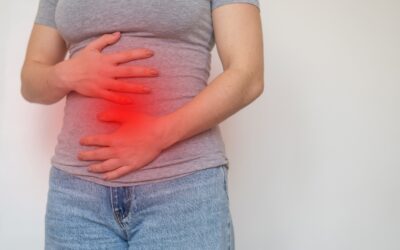Good quality sleep can dramatically improve neurologic rehabilitation outcomes. Getting adequate sleep might also decrease the rate of disease progression in some neurodegenerative diseases (multiple sclerosis, Parkinson’s disease, or ALS). Beyond that, Sleep has been linked to improved memory, mood and cognition. With that said, today we are going to do a deep dive on the stages of sleep, the health benefits of sleep and how to improve overall sleep quality.
What is sleep?
Sleep is the naturally, easily reversible periodic state marked by the absence of wakefulness and by the loss of consciousness of one’s surroundings.
What are the stages of sleep?
Sleep is broken up into stages, NREM (non rapid eye movement) and REM (rapid eye movement). NREM is further divided into 3 stages (N1-N3). Each cycle of stages lasts 90-120 min and humans cycle through these stages 4-5 times per night.
NREM
Stage 1-2
- The body progresses from a state of wakefulness to sleep
Stage 3
N3 is the deepest stage in sleep in the sleep cycle. It is often referred to as slow wave sleep.
Characteristics of this stage of sleep include:
- Decrease in muscle tone, pulse rate, and breathing rate
- 90% of growth hormone is released (critical hormone for growth and development of most body systems).
REM
As we transition into REM sleep the body becomes more alert similar to wakefulness. REM sleep accounts for 18-25% of the sleep cycle. Other characteristics of this stage of sleep include:
- The body is easily arousable
- Muscles become paralyzed with the exception of eye muscles and breathing muscles
- Heart rate and breathing rate increase
- Amygdala is more “active” (possibly important for processing emotions)
- involved in memory consolidation
How might sleep benefit neurologic rehabilitation?
Improve mood
Adequate sleep allows the body to rest and allows us to wake up feeling refreshed and energized. This has a positive impact on our overall mood and participation in rehabilitation activities.
Heart health
As mentioned earlier, during slow wave sleep the heart rate and blood pressure decrease. If the body missed out on this critical stage of sleep this might weaken the heart muscle (think about a car engine that is running all the time). This weakening of the heart muscles can lead to heart disease, heart attack, and heart failure. In fact, some literature suggests that individuals who have poor sleep quality are 63% more likely to develop cardiovascular disease.
Regulated blood sugar
Sleep increases insulin release. Insulin promotes the absorption of glucose into the cells of the body. On the other hand, decreased insulin causes glucose to build up in the blood. Excess glucose in the blood (this is where the glucose must stay if it doesn’t enter the cells) for prolonged periods of time leads to insulin resistance. Not getting enough sleep ultimately leads to insulin resistance which might cause unnecessary degradation to intact neurons (nerve cells) in the brain.
Brain plasticity
Many studies have shown that memory consolidation (and learning) occurs during sleep. In particular, this has been studied with people who have had a stroke.
Immune function
The body increases the production of immune cells at night. This is important for fighting infection but also to strengthen adaptive immunity (the memory component of the immune system). The immune system might also play a role in decreasing the downstream damage that occurs in the brain resulting from a stroke or brain injury.
Maintaining healthy weight
Good sleep quality promotes healthy body weight. This has to do with two hormones involved in hunger and satiety, leptin and ghrelin. Leptin is produced by adipose cells and promotes satiety (feeling full). Ghrelin is secreted from the stomach and intestine and sends a signal to the brain telling the brain you are hungry. Acute sleep deprivation has been shown to cause ghrelin levels to rise. Futhermore, chronic sleep deprivation has been shown to cause leptic levels to fall. In addition to this change in our hunger and full signals, being awake longer means more opportunity to eat resulting in more calorie consumption. That is surely a double whammy when it comes to maintaining a healthy weight.
How is sleep regulated?
There are two internal body clocks that work together to promote sleep at night and wakefulness during the day.
Sleep Homeostasis
Sleep-wake homeostasis is one of the two body clocks that is regulated by the number of hours that we are awake. The longer a human stays awake, the greater the drive will be to go to sleep
Circadian Rhythm
The second internal body clock is called the circadian rhythm. This is influenced by the sun and a 24 hour period.
What are the cues that influence the internal body clocks?
Light Exposure
Light exposure early in the morning promotes wakefulness. Additionally, darkness in the evening will prompt our brain to release melatonin (a hormone that promotes sleep).
Social Interactions
Believe it or not, our social circle can impact our health. Moral of the story? Make friends that go to sleep at a reasonable hour.
Meal Schedule
Eating late at night might promote wakefulness.
Work Schedule
How much sleep is required to improve neurologic rehabilitation outcomes?
7-9 hours per night.
How do you improve sleep quality?
Sleep hygiene (good sleep habits) are one way to help improve sleep quality in individuals who experience mild to moderate insomnia. If you are someone who has difficulty staying asleep or falling asleep, here are some things you might try:
- Remove electronic devices, such as TVs, computers, and smart phones, from the bedroom
- Triggers the arousal system
- Avoid
- large meals – tricks the mind into arousal state
- Caffeine – Caffeine blocks adenosine (sleep promoting neuromodulator)
- Alcohol – Alcohol is known to inhibit REM sleep
- Get some exercise
- Being physically active during the day can help you fall asleep more easily at night.
- Make sure your bedroom is quiet, dark, relaxing, and at a comfortable temperature
- Be consistent and try and go to bed at the same time every night (including weekends)
Other articles you might be interested in:
Pelvic Organ Prolapse: What You Need To Know
Around 40% of women worldwide experience pelvic organ prolapse. Most of them are between 60 and 75 years old. While it is common in those who are assigned female at birth (AFAB), it can also occur in people with penises. Though it isn’t infectious, it’s an epidemic in...
Tea-rific Health Benefits of Drinking Green Tea
Around 600,000 tonnes of green tea is consumed annually — a figure that has grown by approximately 20% in the last ten years. When you understand all the benefits of drinking green tea, its popularity isn’t surprising at all. This grassy, flowery, and earthy...
The power of protein on weight management
Weight management can be a challenging journey for many individuals, but with the right approach, achieving a healthy and sustainable weight is possible. Among the various factors that influence weight loss success, the role of protein cannot be overstated. Protein is...
Progressive Muscle Relaxation: Guide to Optimal Health
In today's fast-paced and stress-ridden world, finding effective methods to promote relaxation and restore balance in our lives has become paramount. One technique that has gained considerable recognition in recent years is Progressive Muscle Relaxation (PMR). PMR has...
Causes of pelvic pain and treatment
Causes Of Pelvic Pain And Treatments Do you experience a sharp, shooting pain in your pelvis that comes on suddenly? Do you have a twisted or knotted feeling when exercising or having sex? If so, you may be experiencing pelvic pain. What Is Pelvic Pain? Pelvic pain...
Avocados: The Superfood that is SUPER good for you
Move aside, apples, because there's a new health-conscious favorite in town that's ready to steal the spotlight. Enter avocados, the green wonders that can humbly boast about their irresistible taste and creamy texture. But even more so about their health benefits....
Is a meat diet healthy?
The impact of meat consumption on health is a complex and debated topic. The vegans will give a compelling argument that meat will kill you. And of course, the “carnivore” (person who primarily eats meat) will give a compelling argument that meat is the healthiest of...
Endometriosis: What It Is, Symptoms, Risk Factors, and Treatment
Endometriosis affects more than 11% of American women between the ages of 15 and 44 years as well as roughly 10% of women globally according to the Women’s Health division of the U.S. Department of Health and Human Sciences. Notoriously common and painful, this health...
Unveiling the Health Secrets Within: Understanding the Gut Microbiome
The human body is home to trillions of microorganisms, forming a complex ecosystem within our gastrointestinal tract (GIT) known as the gut microbiome. Long overshadowed by the spotlight on human cells, this intricate community of bacteria, viruses, fungi, and other...
Netflix Documentary Cooked: A review
Highly processed foods in the Western world often take the brunt of the scrutiny when it comes to the concerning rise in the rate of cardiovascular disease, diabetes, and neurodegenerative conditions (just to name a few). But maybe the “causal relationship” isn’t that...











